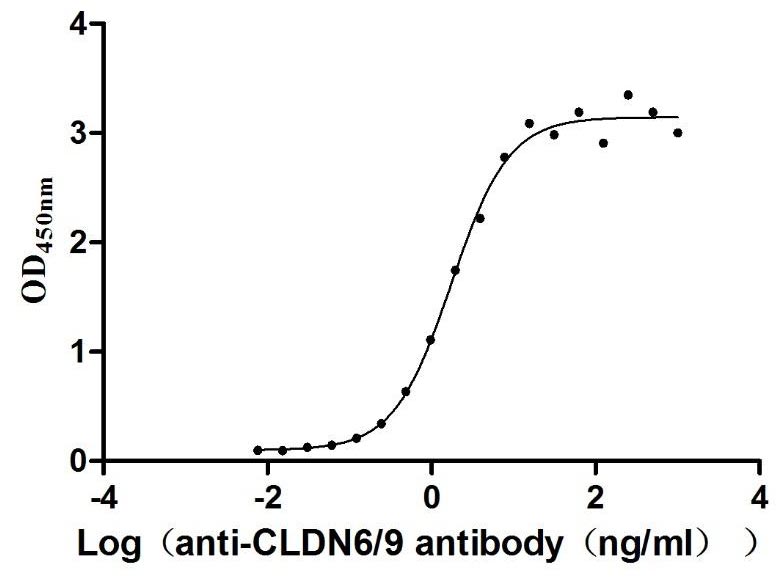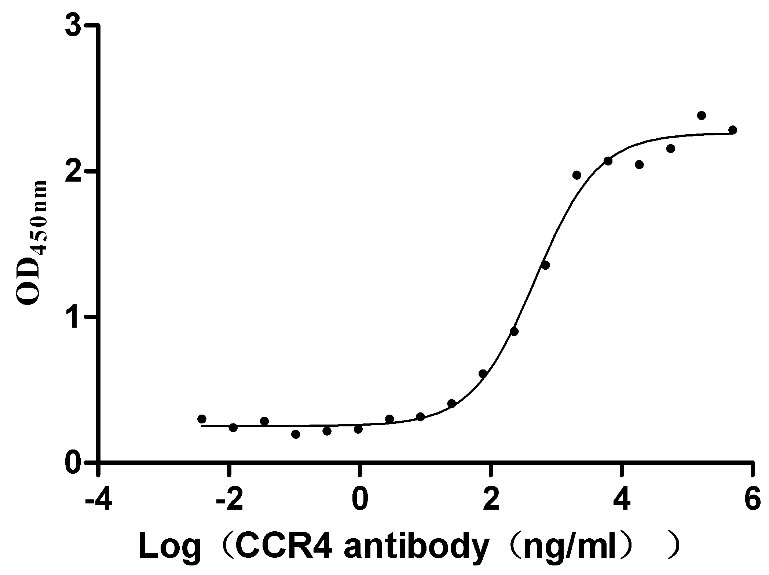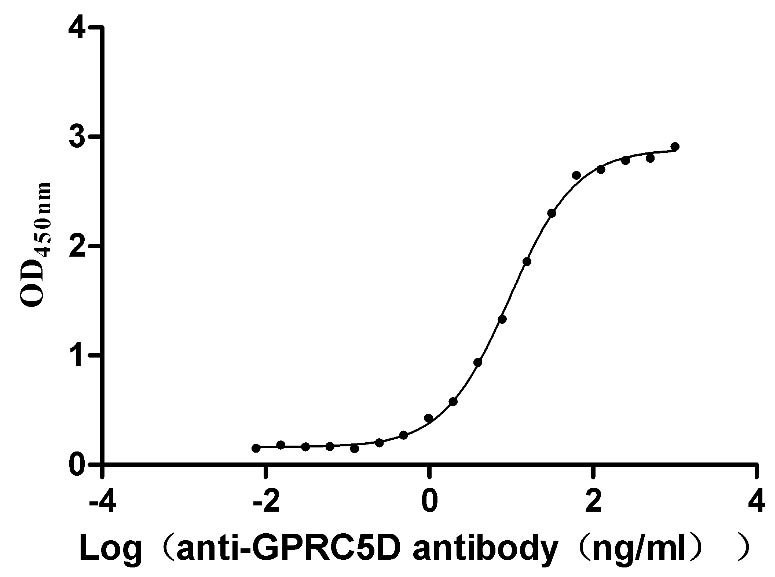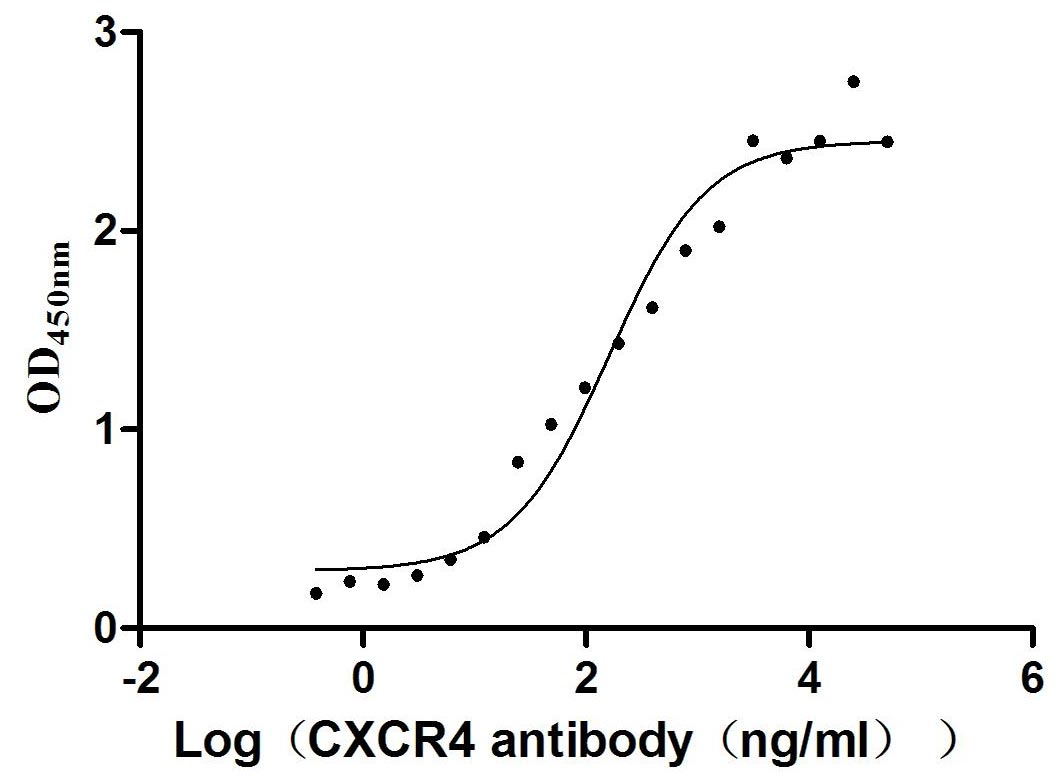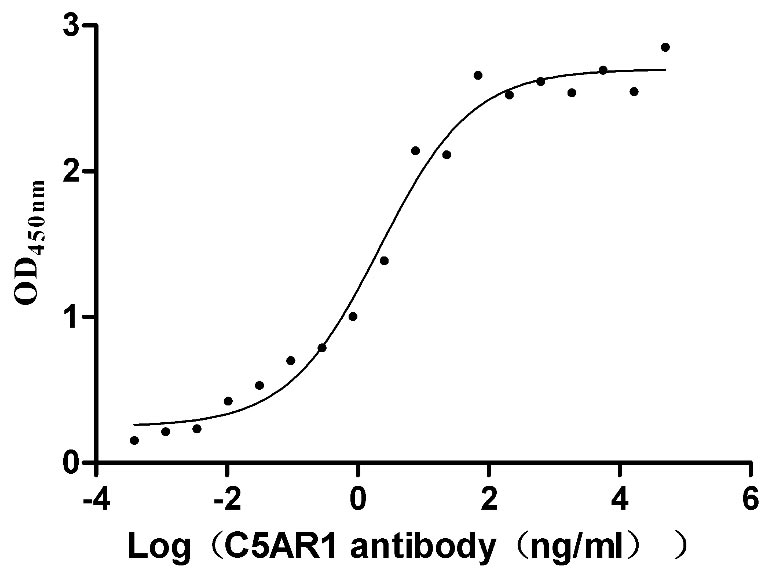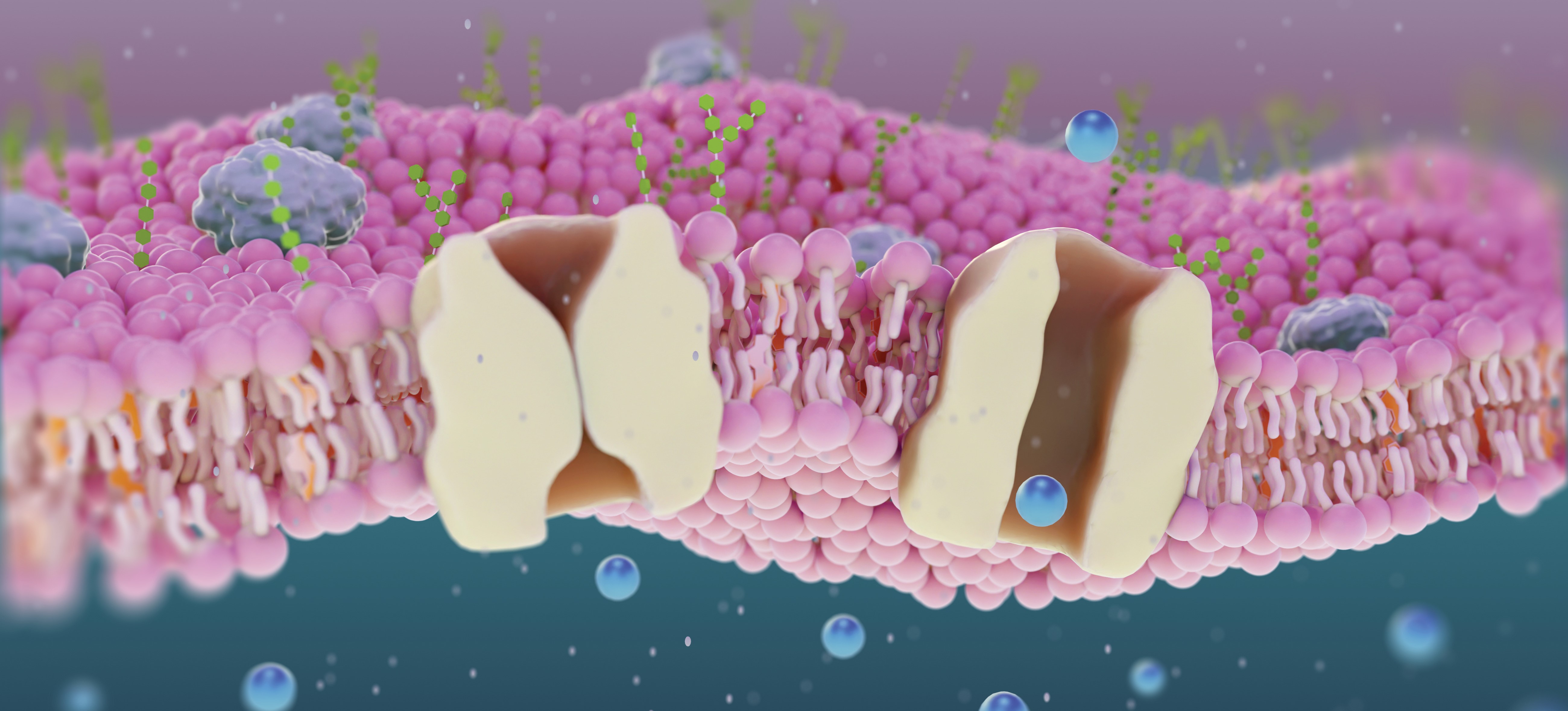
500+ Transmembrane Proteins & Multiple Expression Platforms
Explore Potential Targets for Drug Discovery using our Top-Quality, Validated Transmembrane Proteins and Guaranteed Risk-Free Service
Transmembrane Proteins
Membrane proteins are essential components of cellular membranes, playing critical roles in a wide range of biological functions such as signal transduction, molecular transport, and energy conversion. Among them, transmembrane proteins span the entire lipid bilayer and are key mediators of communication between the cell and its environment. They help cells respond to external signals and regulate the passage of ions, nutrients, and other molecules.
Approximately 30% of genes in the human genome encode membrane proteins, and nearly half of all current drug targets are membrane proteins—highlighting their biomedical importance. Despite their significance, membrane proteins are notoriously challenging to express and purify due to their hydrophobic nature and complex structures.
To address these challenges, Biohippo, in collaboration with CUSABIO, offers specialized solutions to support researchers in the study and application of membrane proteins by leveraging our extensive experience, multiple expression technology platforms and strict quality control process..
Membrane Protein Expression Technology Platforms
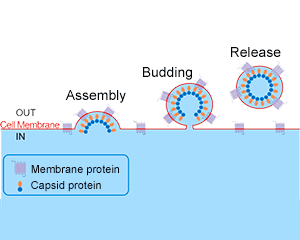
Viral Like Particles (VLPs) Expression Platform
During the expression of capsid proteins from enveloped viruses, these proteins can naturally self-assemble into nanoparticles. When a target protein, such as a transmembrane protein, is expressed, it localizes to the cell membrane. Virus-like particles (VLPs) are then released from the cell through a budding process, incorporating the transmembrane proteins into their outer envelope.
CUSABIO uses a mammalian cell expression system for producing these target proteins. This system closely mimics the natural post-translational modifications found in human proteins, making it the preferred choice for expressing drug target proteins—especially since most pharmaceutical targets are of human origin.
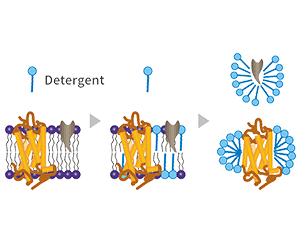
Detergent Micelle Expression Platform
Because of their strong hydrophobicity, transmembrane proteins are either difficult to dissolve in conventional solvents or cannot display the correct conformation. Appropriate detergents need to be added to aid solubility. CUSABIO has specially built a detergent technology platform based on cell free expression. Synthesize proteins by adding DNA templates, ATP, amino acids, various substrates, and enzymes derived from cell extracts in vitro, and then extract the target protein by screening different detergents.
In this platform, CUSABIO uses in vitro E.coli expression system for the target protein expression, then by screening different detergents to extract the target protein.
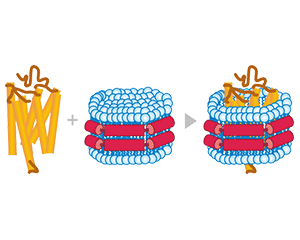
Nanodisc Expression Platform
Most membrane proteins can remain stable and retain their activity in buffers containing detergents. However, some detergent-sensitive membrane proteins are not suitable for these conditions, as they tend to be unstable, prone to degradation or precipitation, and often lose their activity. For such proteins, we recommend using nanodisc technology.
At CUSABIO, we utilize an in vitro E. coli expression system to produce the target proteins. Although other systems, such as mammalian cell expression, are also suitable for nanodisc technology, we have not yet implemented them. During expression in the in vitro E. coli system, membrane scaffold proteins (MSPs) and phospholipids (DMPC) are added to facilitate the formation of nanodiscs. The resulting nanodisc structure includes the target transmembrane protein embedded within a lipid bilayer stabilized by MSPs and DMPC.
Comparison between different expression platforms
| Technology Platforms | VLP Platform | Detergent Micelle Platform | Nanodisc Platform |
|---|---|---|---|
| Coating for ELISA | Direct coating | Direct coating | Direct coating |
| Activity | Great | Good | Good |
| Stability | Most stable | Relatively stable | Relatively stable |
| Purity | Mixture | Relatively pure (only target protein) | Mixture |
| SPR/BLI | Detectable | Detectable (solution adjustment required) | Detectable |
| Other factors | Total protein concentration; Relatively short preparation cycle |
Relatively long preparation cycle | Relatively long preparation cycle |
Why Choose Us?
Responsive and Professional Support
Our customer service is available 11/7 to answer any questions you may have and to discuss your project. If the product does not perform as promised in the manual, just contact us before expiration date for technical support, replacement or refund.
Extensive Experience in Protein Manufacturing
Our partner, CUSABIO, as an experienced protein manufacturer, provides the above three technology platforms to fuel the development of transmembrane proteins. Since establishment of these platforms, 470 proteins have been successfully produced with a yield of mg/ml, which contains 130+ transmembrane proteins (TPs) with 1-15 transmembrane domains and toxic proteins that are difficult to express in traditional E.coli expression systems. We have also produced high molecular weight proteins (130 kDa -140 kDa) that contain multiple transmembrane domains.
Strict QC & Thorough Validation
The quality of our proteins is the cornerstone of our ability to serve our clients. For this reason, we invest tremendous resources in developing proteins, validating their application, managing, controlling and improving quality. Each protein will undergo our standardized quality control process before shipped, which include concentration detection, purity detection, endotoxin removal, activity detection, et al.

High purity determined by SDS-PAGE

High Specificity Validated by Western blot (WB)
.png)
Good bioactivity validated by Functional ELISA

Correct structure validated by SEM

Hot-Selling Transmembrane Proteins
(SKU: BHP10509475)
Immobilized human CLDN18.2 at 5 µg/mL binds anti-CLDN18.2 antibody.
EC50: 5.225–9.256 ng/mL.
(SKU: BHP10509502)
Immobilized Human CLDN6 at 10 μg/ml can bind Anti-CLDN6/9 recombinant antibody.
EC50: 1.501-2.035 ng/mL
(SKU: BHP10509469)
Immobilized human GPC3 (G537R) at 5 μg/ml can bind Anti-GPC3 recombinant antibody.
EC50 is 4.739-7.092 ng/ml.
(SKU: BHP10509496)
Immobilized Human CCR4 at 10 μg/ml can bind Anti-CCR4 recombinant antibody, and the EC50 is 362.3-630.8 ng/mL.
(SKU: BHP10509498)
Immobilized Human GPRC5D at 5 μg/mL can bind Anti-GPRC5D recombinant antibody.
EC50 is 8.847-10.38 ng/mL.
(SKU: BHP10509497)
Immobilized Human CXCR4 at 10 μg/ml can bind Anti-CXCR4 recombinant antibody. EC50 is 101.7-253.6 ng/mL.
(SKU: BHP10509485)
Immobilized human CCR8 at 5 μg/ml can bind Anti-CCR8 recombinant Antibody, and the EC50 is 11.13-17.29 ng/ml.
(SKU: BHP10509495)
Immobilized human C5AR1 at 10 μg/ml can bind Anti-C5AR1 recombinant antibody, and the EC50 is 1.239-3.760 ng/mL.
 Loading ....
Loading ....
-AC1.jpg)
